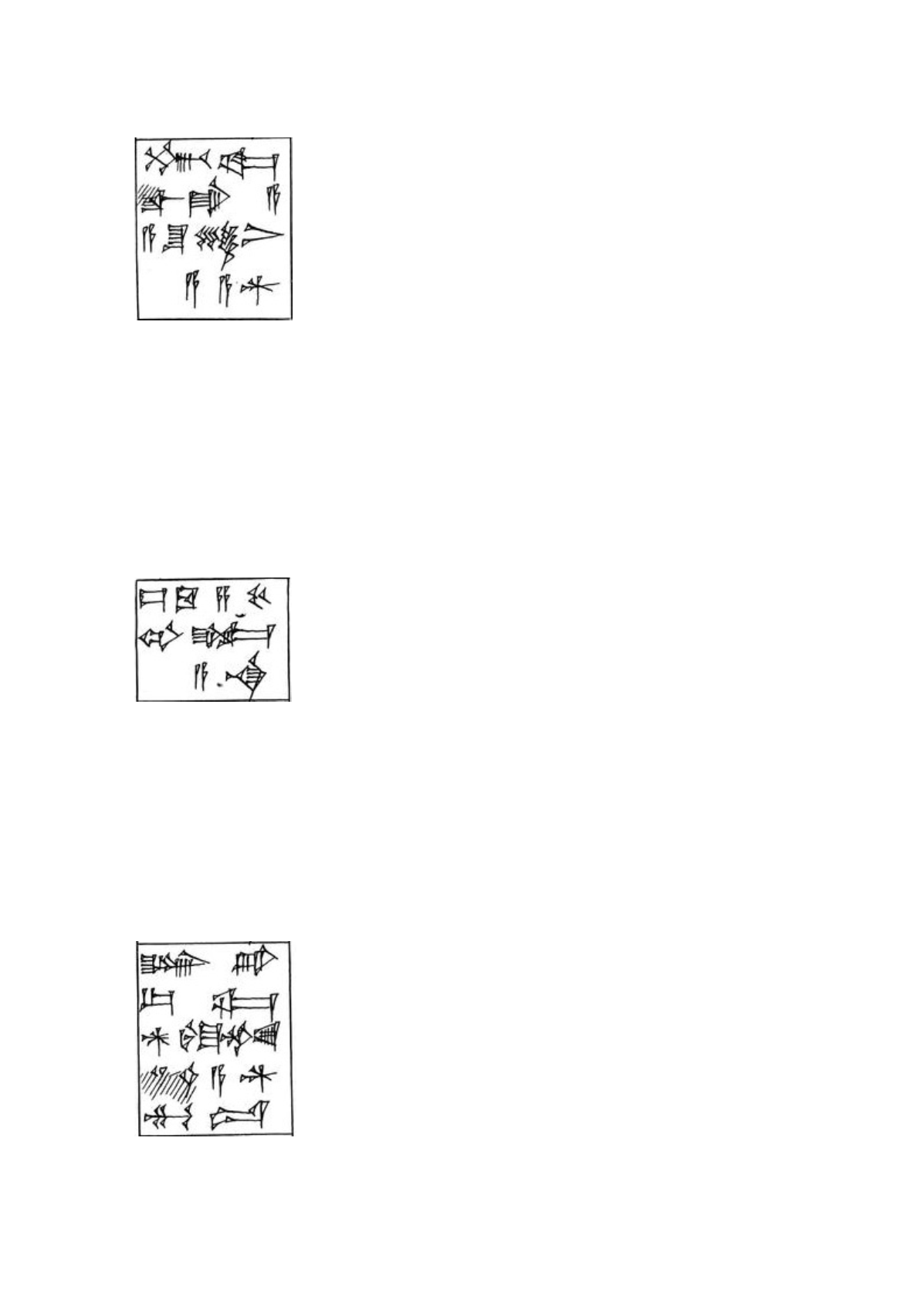

449
Gudea di Lagash – La costruzione del tempio di Ninjirsu - Cilindro B
B XVI.14 – 1193
muš ka
[
sig
7
]
.ga.a
A.ŠU.NAGA.a.am 3[[muš ka
[
sig
7
]
.a].ak A.ŠU.NAGA.a].am
3
sono (come) un serpente dalla bocca gialla che fa il bagno.
muš ka
[
sig
7
]
.ga.a : “eine Schlange mit gelben Maul” (GSG1.22: “Nicht erklärbare Pleneschreibungen”); a
meno che non si tratti di un genitivo (GSG1.92: “unsicher”; GSG1.103); per muš “serpente”, vedi A
X.20; per sig
7
vedi B XVI.10
A.ŠU.NAGA.a : forma participiale “ist gewachsen” (GSG1.144:
A.TU5
.a.am 3). A.ŠU.NAGA, leggibile
anche
a.tu 5(LEC.101 assegna il valore TU
5
solo al segno ŠU; MEA.354 fine lo assegna invece a
ŠU.NAGA): “to wash, bathe” (PSD2.2); SL riporta un a…tu
5
“ to bathe ('water' + 'to wash')” e un
a.tu 5.a
“ lustration ('water' + 'to wash' + nominative)”. Esiste comunque anche un altro A.ŠU.NAGA,
a.tu 5“a
type of priest” (PSD2.26 a.v.
atua
). Per il segno NAGA, vedi LEC.368a, MEA.165
B XVI.15 – 1194
jiš.gigir za.gin
3
ul il
2
.a.na[
jiš
gigir za.gin
3
ul il
2
.a].ani.a
Nel suo azzurro magnifico carro,
za.gin
3
: vedi A V.3; in questo caso - come in A VII.19; B IX.8, XVII.1 – za.gin
3
è aggettivo (GSG2.36n2)
ul il
2
.a : “che porta ornamento, magnificenza”; ul [U.GUD] “bouton de fleur, fleur; ornement; abondance,
magnificence” (PLS.149); “joy, pleasure, satisfaction; star; flower; bud; ornament” (SL); “attractiveness;
pleasure; rejoicing” (PSD2.269); il
2
.a : participio; ul il
2
.a.na“an seinem … der Vollendung trägt”
(GSG1.134)
[…].ani.a : col suffisso possessivo, seguito dal marker del locativo, “an seinem strahlenden Wagen, der
Vollendug trägt” (GSG2.103)
B XVI.16 – 1195
lugal.biur.saj d.nin.jir
2
.su
[
d
]
.utu.am 3mu.gub
lugal.biur.saj
d
Nin.Jirsu
d
Utu.am 3mu.gub
il suo signore, l’eroe Ninjirsu, come Utu sta.
lugal.biur.saj d.nin.jir
2
.su : per l’uso dell’apposizione, vedi GSG2.16
















